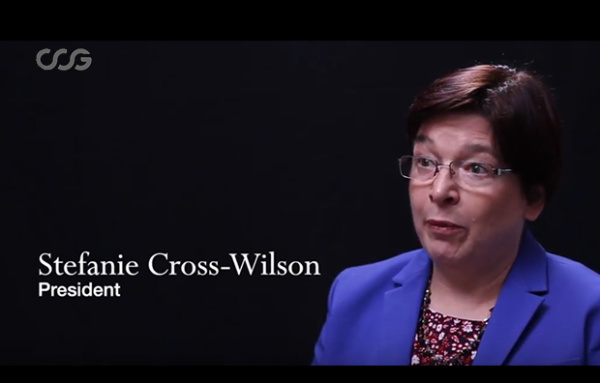In December, ChapmanCG and Commonwealth Bank of {nolink}Australia {/nolink}brought together a diverse group of senior {nolink}Talent Acqusition{/nolink} and {nolink}Talent Management{/nolink} leaders in {nolink}Hong Kong{/nolink} to share insights on the discussion topic ‘The Talent Life-cycle in APAC Today’. Representatives from various industries and organisations attended the interactive session, including those from Accenture, Bloomberg, CBRE, Herbert Smith Freehills, HSBC, KineticHR, Morgan Stanley, Prudential, Telstra, Tesco and Williams Lea. A few interesting trends came to light when considering the link between the Talent Acquisition function and overall retention and engagement strategies in APAC.
Back to Basics
It was clear from the initial discussion that there is a trend toward getting back to the basics of Talent Management. The top three priorities identified are detailed below:
- The 80/20 Rule: It was agreed that the complexity of roles changes frequently – so much so that companies don’t usually have the luxury of time to design new HR strategies. One HR leader suggested that 20% of time should be spent on designing HR strategies and the remaining 80% would be execution of the actual rollout.
- Plan for the Future: In order to ensure organisational success, HR leaders must be able to meet both current and future needs simultaneously. As such, the importance of determining and defining specific capabilities for the future is critical, and has to be taken into account in the initial stages of strategy formulation.
- Collaborate and Include the Whole Business: The majority of the group reinforced that collaboration between strategic resourcing and talent engagement is key to selecting and retaining top talent. In order for HR to deliver the most value possible to the organisation, a non-HR approach must sometimes be taken, in order to have a clear understanding of the full set of business priorities and challenges.
Technological Change is the Only Constant
Keeping up with the most productive use of new technologies is a constant challenge but a necessary one in order to make businesses more sustainable and efficient. In order to attract the tech-savvy Gen Y talent, HR leaders need to inject innovative elements to send the right message to the masses. Of course social media and apps such as Facebook and LinkedIn have been used extensively in reaching out to and communicating with the targeted networks. More recently some firms have also turned to these mediums to recruit new graduate hires, as opposed to physically promoting their organisations and opportunities at the more traditional university career fairs.
Commonwealth Bank of Australia co-host Preema Kabir, Talent Acquisition Lead, shared her company’s latest technology initiative, which showcases the employer brand and provides candidates with an insight into working for the company via the newly launched Innovation Lab and Oculus Rift goggles. Launched in 2014, the idea behind the lab is to harness the spirit of creativity and generate disruptive ideas. Each visitor to the lab is given a tablet, which connects to a digital board and allows the development and contribution of ideas. Inside the Lab, there are Oculus Rift zones where candidates can view life at CBA as an employee or as a customer through their goggles. Amazed by the technological effort put into the hiring process, the group looks forward to the next revolution that will sweep the HR space.
The Death of the CV → the Rise of the Assessment Centre
Many global organisations are taking the lead in doing away with the traditional paper screening process using CVs. In an ideal world, companies want to find talent of the right calibre, who will also fit in with the corporate culture, and it seems that new recruitment methods have proven to be effective in killing these two birds with one stone. Organisations are now using psychologists to develop selection tests that are specifically tailored to the company’s DNA. These assessment centres have risen in popularity to help identify talent and facilitate a fit between the applicant and the job.
In some instances, right from the application form, a candidate’s academic and work experience is omitted from view, maintaining a focus on one’s skill sets and motivations instead. After successfully passing a series of online psychometric tests and perhaps a phone interview, the assessment centre comes into play. Here, the assessors have no access to the CV of the participant, rather the judging panel will make a decision based on the performance of the candidate as observed throughout the day. Even at the final stages of the interview process background anonymity is strictly maintained – candidate identity is only revealed to the recruiting managers, after the candidates officially become employees.
The results thus far have been highly encouraging, as some attendees reflected that this new recruitment method had already yielded cohorts of successful candidates that were regarded as the crème de la crème in the organisation. The majority had graduated from highly regarded universities, but better yet; their beliefs and personalities were tested and were shown to sync consistently with the company’s values as well. The only caveat is that this seems to work most effectively at the graduate hire level, where it is also most cost-efficient. Particularly for large corporations, outsourcing the recruitment process is still recommended for junior hires, as is having an in-house HR team that holds responsibility for senior recruitment, where CVs are still valuable and necessary.
Where assessment centres have been utilised, we will be interested to see whether these top-notch employees thrive in their new work environments and continue to be valuable resources over longer time periods. For now, the baton has been passed to the Talent Management team where the focus will be on training and developing these future leaders to reach their full potential as part of the retention strategy. We will count on finding out how things have progressed when these HR leaders regroup next year.
Many thanks go to our hosts at Commonwealth Bank of Australia, and we look forward to the next discussion where we can gauge the success rates of the HR initiatives and see if the risks paid off. What a great way to end 2015, till the next thought-provoking sessions in Hong Kong in early 2016.
Key Contributors:


 Andrea Merrigan
Andrea Merrigan Orelia Chan
Orelia Chan Stanislav Medvedev
Stanislav Medvedev Fleur Daniell
Fleur Daniell Finian Toh
Finian Toh Tim Rayner
Tim Rayner Nicola Hasling
Nicola Hasling Stefanie Cross-Wilson
Stefanie Cross-Wilson

 Devijaya Nair
Devijaya Nair Steve Brown
Steve Brown Dee Karsan
Dee Karsan

 Katherine Qu
Katherine Qu 


